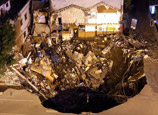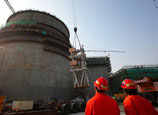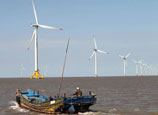
"But it is not likely that the government will restart any inland projects before 2015," said Lin, who further noted that until 2020, the government will focus on finishing projects that have already been started.
Ren Haoning, a nuclear industry analyst at CIC Industry Research Center, noted that the halt could cause companies and local governments to lose big on their investments.
The China Economic Weekly report said that the local branch of China National Nuclear Corp has already invested around 4 billion yuan in the Taojiang project, and the local government of Taojiang has also invested around 80 million yuan in related infrastructure.
The three companies were not available for comment Tuesday. But the China Economic Weekly said China National Nuclear Corp has already pulled some of its employees out of the construction site.
"Inland nuclear projects will cause far more danger to the local environment if there is an accident, so it is right for the government to hold a cautious attitude," Ren noted.
The central government's recently released five-year plan for the energy sector said that China's total nuclear power installation should reach 40 million kilowatts by 2015, up from 10.82 million kilowatts in 2010.
However, the central government said in October that new nuclear projects must comply with third-generation safety standards, which Lin said will "greatly slow the development of China's nuclear power."
"With China boosting the development of other energy such as shale gas and solar power, it will further reduce the necessity for China to develop inland nuclear power stations," Ren from CIC noted.

















 Buildings collapse after subsidence in S China
Buildings collapse after subsidence in S China


![]()
